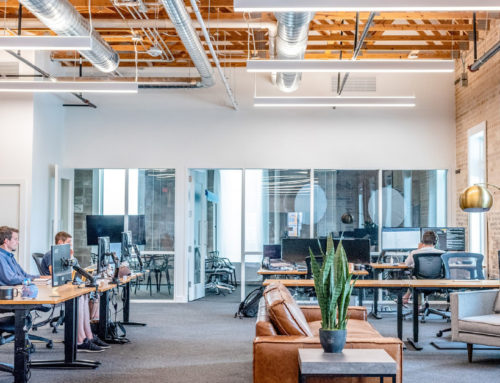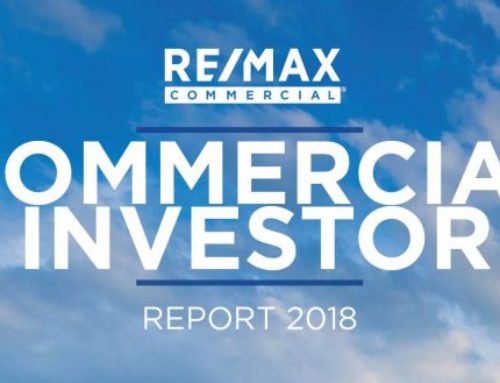[vc_row][vc_column][vc_column_text]RE/MAX recently released its 2017 Commercial Investor Report, highlighting trends and market activity in several key markets. Following up on the report, we have compiled some introductory tips from some of our brokers and agents for investing in commercial real estate. [accordion]
[item title=”Understanding your Investment Goals“]
With any type of investing, establishing your investment objectives is a critical first step. It’s important to establish your capacity to take on risk and determine what you hope to achieve with your investment. As an investor, are you looking for slow long-term growth or are you willing to take greater risks in the hopes of seeing higher short-term returns?
In the context of commercial real estate investment, as a potential purchaser of a property is it more important to you that your investment provide long-term gain through property value appreciation, or are you looking for a property that will provide a steady income? Understanding what you hope to achieve when investing in commercial real estate will help you make a sound investment and achieve you investing goals.
[/item]
[item title=”Choosing the right property“]
There are a number of different factors to consider when determining whether a property is a good investment or not. As in any type of real estate, location is a key consideration when investing in commercial property. A good location is often critical to attracting tenants that will benefit your property and can go a long way in determining the value of an investment.
To that end, it’s important for investors to also consider the quality of the tenants when investing in commercial real estate. A large concentration of tenants that work in a sector facing poor future prospects, for example, can be detrimental to the value of a property as their ability to pay the rent declines. It is also important to review and understand the terms of any tenant leases.
Investors should also be conscious of the condition of the property when deciding to make an investment in a commercial building. If you’re not planning on doing a major overhaul or repairs on an existing property at the outset, you should factor in the “wearability” of the property – the likelihood and potential costs of future repairs.
[/item]
[item title=”Opportunities to look out for“]
Often newcomers to investing in commercial real estate will overlook certain opportunities that a more seasoned investor would recognize. Investors should look for potential factors that may cause a property to increase in value, beyond the value of the land simply appreciating over time. Are there any new infrastructure projects proposed nearby, such as a commuter train connecting a formerly difficult-to-access area to the downtown core, which may spur a population increase? What is the timeline for these types of projects?
New investors also frequently overlook great locations that feature older properties, which may involve heavy redevelopment costs upfront but have high potential to attract high-quality tenants down the road. These types of properties can represent good long-term value for investors.
[/item]
[item title=”Common pitfalls to avoid“]
The most common pitfall new investors fall into is underestimating the true costs associated with a property. Investors must assess if the income reported by the previous landlord is accurate. It is also critical for investors to properly asses the condition of the property and the associated repair costs that may be required. If restoration costs are too high, rent may not be enough to recover the investment price. A trusted commercial real estate agent can provide an accurate assessment of the potential of a property and help newcomers to commercial real estate avoid these common mistakes.
[/item]
[item title=”Business owners: owning vs. leasing “]
The benefits to owning versus leasing are very specific to the individual or corporation. Every business has different needs and sometimes it is the relative maturity or structure of the business that will dictate whether owning or leasing property is the best choice. Owning real estate may provide greater flexibility to make improvements to the property that will help grow the business and may also provide a vehicle to borrow against in the future. Choosing to buy a property rather than lease is a decision that can only be made on a case by case basis.
[/item]
[/accordion]
Click the button below to learn more about RE/MAX Commercial or for additional information on investing in a commercial property. RE/MAX Commercial practitioners provide the extensive services you need to reach your commercial real estate goals. Not only do they have the experience, knowledge, and independence required to help you find the commercial space you are looking for, they have imagination and innovation to help you advance your business from the ground up.[/vc_column_text][/vc_column][/vc_row][vc_row][vc_column][vc_btn title=”Learn More About RE/MAX Commercial” color=”danger” align=”center” link=”url:http%3A%2F%2Fwww.remax.ca%2Feditorial%2Fcommercial-for-buyers%2F||” css=”.vc_custom_1478092732296{background-color: #ffffff !important;}”][/vc_column][/vc_row]













